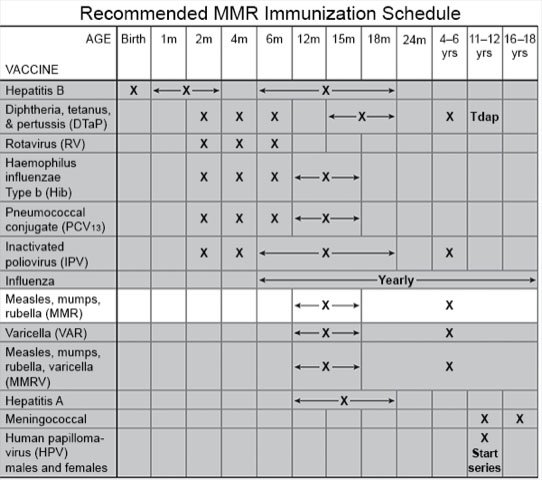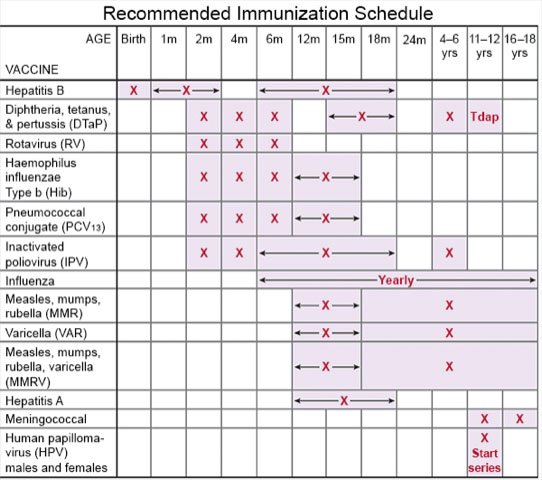Mumps in Children
Medically reviewed by Drugs.com. Last updated on Apr 6, 2025.
What is mumps?
Mumps is a disease caused by a virus. Mumps causes inflammation of the parotid glands. Parotid glands help to make saliva. They are located in front of and below each ear. The mumps virus is spread when an infected person coughs or sneezes. It is also spread through direct contact, such as sharing cups or toys.
What are the signs and symptoms of mumps?
- Fever, weakness, or tiredness
- Swollen, painful glands on one or both sides of your child's face
- Pain when your child chews or swallows
How is mumps diagnosed?
Your child's healthcare provider may be able to diagnose mumps based on your child's symptoms and a physical exam. Your child may need a blood test to confirm the infection.
How is mumps treated?
Mumps cannot be cured. The following can help decrease your child's symptoms:
- NSAIDs , such as ibuprofen, help decrease swelling, pain, and fever. This medicine is available with or without a doctor's order. NSAIDs can cause stomach bleeding or kidney problems in certain people. If your child takes blood thinner medicine, always ask if NSAIDs are safe for him or her. Always read the medicine label and follow directions. Do not give these medicines to children younger than 6 months without direction from a healthcare provider.
- Acetaminophen decreases pain and fever. It is available without a doctor's order. Ask how much to give your child and how often to give it. Follow directions. Read the labels of all other medicines your child uses to see if they also contain acetaminophen, or ask your child's doctor or pharmacist. Acetaminophen can cause liver damage if not taken correctly.
- Do not give aspirin to children younger than 18 years. Your child could develop Reye syndrome if he or she has the flu or a fever and takes aspirin. Reye syndrome can cause life-threatening brain and liver damage. Check your child's medicine labels for aspirin or salicylates.
How can I manage my child's symptoms?
- Give your child plenty of liquids. Liquids help prevent dehydration. Ask how much liquid your child should drink each day. Give your child water, juice, or broth instead of sports drinks. He or she may also need an oral rehydration solution (ORS). An ORS has the right amounts of water, salts, and sugar your child needs to replace body fluids. Ask your child's healthcare provider where you can get an ORS.
- Give your child soft foods. These include cooked cereal, rice, mashed potatoes, applesauce, or soup. Do not serve foods that are sour or hard to chew. This can cause an increase in saliva and make your child's pain worse.
- Help your child rest. Your child should rest as much as possible and get plenty of sleep.
- Apply ice. Ice helps decrease swelling and pain. Ice may also help prevent tissue damage. Use an ice pack, or put crushed ice in a plastic bag. Cover it with a towel and place it on your child's swollen glands for 15 to 20 minutes every hour as directed.
What do I need to know about the mumps vaccine?
The MMR vaccine helps protect your child and others around him or her from measles, mumps, and rubella. Your child's provider will tell you how many doses your child needs. He or she will tell you when to bring your child in to get the vaccine. If your child is 12 months to 12 years of age, his or her provider may recommend the MMRV vaccine instead. This vaccine also protects against varicella (chickenpox). Your child's provider will tell you which vaccine is best for your child.
 |
What can I do to prevent the spread of germs?
 |
- Keep your child away from other people while he or she is sick. This is especially important during the first 3 to 5 days of illness. The virus is most contagious during this time.
- Have your child wash his or her hands often. He or she should wash after using the bathroom and before preparing or eating food. Have your child use soap and water. Show him or her how to rub soapy hands together, lacing the fingers. Wash the front and back of the hands, and in between the fingers. The fingers of one hand can scrub under the fingernails of the other hand. Teach your child to wash for at least 20 seconds. Use a timer, or sing a song that is at least 20 seconds. An example is the happy birthday song 2 times. Have your child rinse with warm, running water for several seconds. Then dry with a clean towel or paper towel. Your older child can use hand sanitizer with alcohol if soap and water are not available.

- Remind your child to cover a sneeze or cough. Show your child how to use a tissue to cover his or her mouth and nose. Have your child throw the tissue away in a trash can right away. Then your child should wash his or her hands well or use a hand sanitizer. Show your child how to use the bend of his or her arm if a tissue is not available.
- Tell your child not to share items. Examples include toys, drinks, and food.
- Ask about vaccines your child needs. Vaccines help prevent some infections that cause disease. Have your child get a yearly flu vaccine as soon as recommended, usually in September or October. Your child's healthcare provider can tell you other vaccines your child should get, and when to get them.

Drugs used to treat this and similar conditions
Claforan
Claforan is used for bacteremia, bone infection, cesarean section, CNS Infection, endometritis ...
Cefotaxime
Cefotaxime systemic is used for bacteremia, bone infection, cesarean section, CNS Infection ...
Call your local emergency number (911 in the US) if:
- Your child has a seizure.
When should I seek immediate care?
- Your child has trouble breathing or is breathing faster than usual.
- Your child suddenly cannot hear.
- Your child has abdominal pain, nausea, or vomiting.
- Your child is confused or less alert than usual.
- Your child has a severe headache that is not relieved by pain medicine.
- Your child has a stiff neck.
When should I call my child's doctor?
- Your child's swollen glands are red for more than 8 days.
- Your child has trouble eating and drinking.
- Your male child's testicles are red, swollen, or painful.
- You have questions or concerns about your child's condition or care.
Care Agreement
You have the right to help plan your child's care. Learn about your child's health condition and how it may be treated. Discuss treatment options with your child's healthcare providers to decide what care you want for your child. The above information is an educational aid only. It is not intended as medical advice for individual conditions or treatments. Talk to your doctor, nurse or pharmacist before following any medical regimen to see if it is safe and effective for you.© Copyright Merative 2025 Information is for End User's use only and may not be sold, redistributed or otherwise used for commercial purposes.
Learn more about Mumps
Treatment options
- Medications for CNS Infection
- Medications for Infection
- Medications for Infectious Hepatitis
- Medications for Mumps Pancreatitis
- Medications for Mumps Polyneuropathy
Care guides
Symptoms and treatments
Further information
Always consult your healthcare provider to ensure the information displayed on this page applies to your personal circumstances.
